EDITOR’S FOREWORD: We’ve had a few posts over the nearly 7 years of our existence that have focused on works of literature, but very damned few. That’s not shocking, because this is first and foremost a blog about music. But for some musicians who dare to talk about it, and for many ardent fans, there are connections between these two forms of art.
Beyond those connections, some of you (maybe even the majority of those who visit this putrid site) spend as much time reading for pleasure as you do battering yourselves with violent sounds. For those in that group, and for those who are open to finding new inspiration, we bring you a very different kind of list from Neill Jameson of Krieg. I selfishly hope this will spawn both comments on this post and more features on our site about written works of art that dovetail with our interests in metal.
Our thanks to Neill for the following words:
******
I fashion myself to be cultured, which is basically a bullshit way of trying to make being a socially awkward fucking nerd seem somehow romantic and interesting to people besides my cats.
I tend to read a lot, though not as much as I did in the past, which has been a New Year’s resolution every year. I’m sure this is fascinating to absolutely no one, not even my cats, but it gave me the idea to share my other passion with you while you try to avoid work or are spending time on the can, namely books.
A lot of what has inspired me through the years lyrically has come from literary works. Considering it seems that the average American these days is petrified of reading and treats books that aren’t a Dan Brown novel like punishment, I feel it’s somewhat of my duty as a pretentious dickhead to try to get someone to pick up a book for something besides beating their children with them. Here’s a few authors I find worth reading.
IRVINE WELSH
Welsh is mostly known for writing Trainspotting, which people mostly know because of the movie, but the book itself is a lot more immersive and complex than its film companion.
Welsh writes dialogue in phonetics which mimic the accents and mannerisms of the geography where his characters are from. He’s written around a dozen novels, several collections of short stories, plays, and a lot of critical essays on subjects including politics and culture, and he continues to be incredibly productive to this day.
His writing deals with the low-culture side of life, the degenerates and forgotten, the common man/woman whose life isn’t turning out how they’d envisioned. The fucked, to put it bluntly. He shows an obvious love for language and its myriad of uses, as well as a desire to work with complex and evolving/devolving characters in subversive situations, but never in a manner that makes you lose your sense of immersive disbelief.
Working-class sensibilities, but with an obvious eye to the arts and culture of music, a brilliant gateway drug to a world of literature you won’t find at an airport bookshop below the pornography and next to the mini bottles of Scope.
BRET EASTON ELLIS
Another modern writer whose career seems to be defined by the controversy surrounding one book out of his numerous volumes: American Psycho. If you’ve only ever seen the film adaptation then you’re missing the bigger picture of not only this novel but most of Ellis’ work in general.
As much satirical as it is masochistic and violent, American Psycho is more an echo of the excesses of the cultural landscape of the materialistic world of the upper class 1980s, just with a lot of physical violence as a metaphor for the ugly emotions driving the time period.
Ellis’ books all seem to have a theme running throughout, which is how greed, self-interest, narcissism, and selfishness are the true root of suffering, be it physical or emotional. I’ve found him to be a quick read because his style is simple yet refined and he wastes no time being able to suck you into the filthy world his characters reside in. It’s amazing how books he wrote two decades ago still feel modern because of how they reflect the American zeitgeist.
GEORGES BATAILLE
Here’s a name you’ve probably seen mentioned in articles that academics write on music which come out dry and pretentious, like the authors of these articles parent’s wedding night. His theories on life and creation get attributed in everything, especially harsh noise pieces. I once read a book about noise in music that mentioned him every three pages (the book was so dry that I actually began a running count). And I suppose this is all well and good, especially since he did construct a lot of written work on philosophy and criticism, but that is just one side to his mind, the other being his many works of disturbing fiction.
Bataille wrote as if the concept of “taboo” was as foreign as a flashlight to King Arthur, and with an elegance that managed to make even the most despicable scene of carnality seem erotic, though absolutely fucking gross. I have Jef Whitehead to thank for introducing me through a copy of Story of the Eye, which is an excellent flashpoint for a reader interested in the subversion of religion, morality, and eroticism. Unfortunately a lot of his work is currently out of print and I don’t have much luck in used bookstores.
KNUT HAMSUN
Before someone mentions it in the comments section and calls the police to have me arrested; yes Hamsun was a Nazi sympathizer in his old age. But I’m not here to write about the political proclivities of the man but rather his work, specifically of interest to whoever is still reading this piece, his early work.
His first few short novels, especially Hunger, deal with similar stuff as Russian writers of the late 1800s/early 1900s deal with, the perception of the creators’ reality, especially under incredible (and self-imposed) hardships (think Notes from the Underground).
Hallucinatory at times, Hamsun is able to create characters of great conviction who are not entirely attached to reality. His later works began to focus more on his home country of Norway’s traditions and culture, resulting in a Nobel Prize for his book Growth of the Soil, which is an excellent account of the life of a man in between the pioneer periods and industrial era of the 1900s. Hamsun’s writing does not deal with anything political.
NICOLAI LILIN
Lilin is controversial because his books, which are somewhat promoted as memoirs, are apparently mostly works of fiction. I’ve only read Siberian Education, but it was enough to warrant me writing a bit about it.
Lilin weaves a tale of growing up in a criminal community while beautifully describing the customs and traditions of the Siberian criminal. Fiction or not, it does help stir up questions of ethics and morality, especially in the Western world, and is beautifully written. His stories are well-constructed and flow nicely, while, as Irvine Welsh put it in his own review of the novel, it makes you question the nature of the ideas of good and evil.
******
I know this piece was a bit different and I promise I won’t do it again, but I felt the need to share my other artistic love with someone, and unfortunately for you, this seemed like the right place for it.Thank you to both NCS and its readers for indulging me.
EDITOR’S AFTERWORD: “I won’t do it again”? What will it take to change your mind?

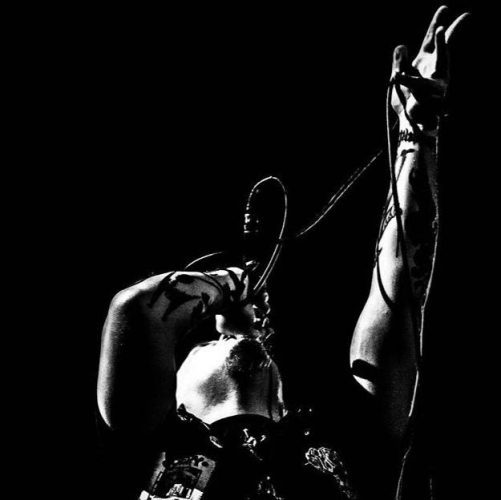
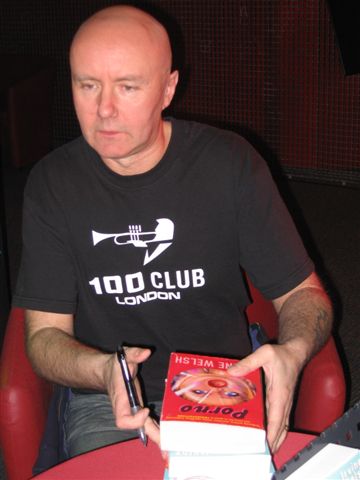
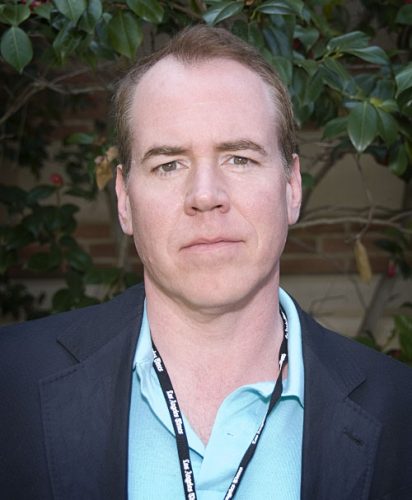
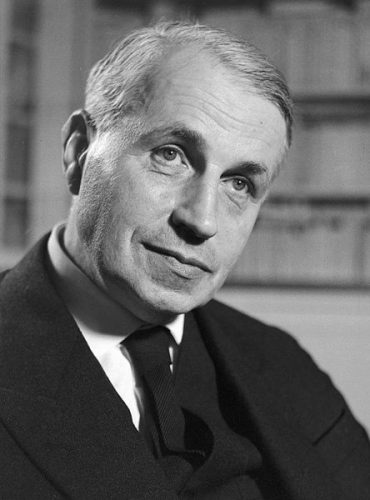
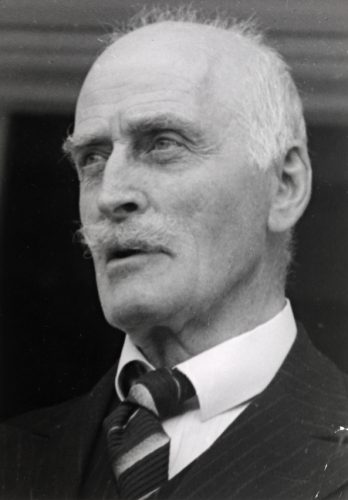
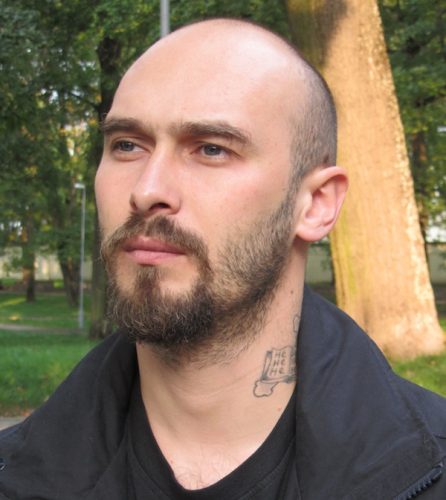
Good to read Neill, and some more names to add to my always growing list of novels to read.
With regards to Brett Easton Ellis, although I do enjoy his work in general, it does feel like he’ll forever be in the shadow of “American Psycho”. Which isn’t the worst place to be I suppose. Though I am a BIG fan of “Lunar Park” and “Glamorama” in particular, when all is said and done.
I was going to do a post of a similar type to this about where I’ve stolen lyrics and titles from for the new album sometime next year (just got official permission to use some extracts from “Annihilation” by Jeff Vandermeer, which is a huge deal to me), so I won’t add much here except…
J. G. Ballard – now while I may have stolen a bit from one of his short stories for a song for album no.2… in general I just really wanted to recommend (to our readers, not necessarily to you) Ballard for his odd, idiosyncratic perspective, particularly as found in his short stories (I’m a big fan of the short story format in general these days).
Of course, “High Rise” is currently seeing a resurgence in popularity/notoriety as well, and that’s not necessarily a bad place to start either!
Just found out about Hamsun about a month or two ago while studying in Oslo – as someone who’s enjoyed a lot of turn-of-the-century modern German literature, I’ve heard he’s been massively influential for many of them – Kafka, for instance. Needless to say, I bought a copy of Hunger out there that I’m taking with me everywhere in the hopes I get a chance to do some fun reading in between all the required university stuff.
I will say, it was also intriguing to see how much Norwegians tend to struggle with how to remember and present Hamsun, given that he was such an important and pioneering author, but with strong support to one of their darkest periods, the Quisling/ Nasjonal Samling years (though as you said, his literature is pretty much non-political, except for perhaps his final novel, published after WWII, in an indirect sense).
But anyway, definitely check out Hamsun and Hunger, friends.
People mostly dont care about the nazi thing. I where i am from we have a hamsun center for culture and art, a hamsun gallery, my high school was named after Knut Hamsun, we have a yearly Knut Hamsun festival, etc. etc.
Hm. The University of Oslo certainly seemed really hesitant (though frankly, that’s my only exposure to him and perceptions of him).
I guess my town is a bit biased as it was the home of Hamsun
I’ve read that NICOLAI LILIN is actually an Italian tattoo (and bullshit) artist. From the Amazon reviews you can find links to some of the articles exposing the supposed hoax.
I’ve only done about 3 minutes of google research, but I figured folks may want to check into it.
Ignore me, I have shitty reading comprehension and missed the part about the books being works of fiction…. and I’m not finding the delete button.
As someone who is a huge Bataille fan, I’ve found it fairly easy to find a lot of his works, both political and fictional, so it’s odd to say they’re out of print and hard to track down. Amazon has a wide selection of the Penguin Modern Classics versions of his fiction, as do some independent bookstores: City Lights Books in SF has a lot and has published several of his works, the Seminary Co-Op in Chicago has a lot and offers online orders and shipment. SUNY has just finished releasing new Stuart Kendall translations of the Summa Atheologica trilogy, University of Minnesota Press has “Visions of Excess,” which collects several non-fiction pieces and essays, which seems to still be in print. I’ve actually had much better luck finding new versions of Bataille’s work versus used copies, so it’s really not that difficult.
A very interesting list though and I really like articles like this. It’s cool to expand outside of simply music, especially since metal and metalheads don’t exist in their own little bubble.
Sem Co Op is the light of my life
same here… nice expansion …
we all need reading..
but it matters what you read..
bataille is great…
so different that one needs a bit of contextualisation
VISION OF EXCESS takes one back to surrealism and the nazidays..
another point of reference is the more personal but great
INNER EXPERIENCE
this is when bataille closed his vision of trying to make a philosopical system of his thoughts..
and then the sentences broke down.. .like mine… into abstracst
in a form of the nietzschian fragmants…
cause the truth cant be said in words and sentences…
enjoy bataille and hamsun.. both two great experimentalist
(by the way… reading hamsun… follow up hunger with Mysterier… )
If you want a mindfuck/nightmare similar to American psycho I remember being freaked out be “My thing” by Will Self when I was a teen. Reading it now as an adult I do find some of it to be shock for shocks sake, but it’s a hallucinatory ride for sure.
Also, Chuck Palahniuk (sp?), author of Fight club has done some great work, very imaginative and off-beat. Particularily “Haunted” is a book I wish I could unread, especially the short story “Guts” (if you find that to be a positive recommendation or not, depends on you and your preferences I guess).
One book I tend to re-read every couple of years or so is “Winters tale” by Mark Helprin. It was made into a horrible movie, so ignore that one, but the book is a fantastic, sprawling kaleidoscope of larger-than-life characters. There’s a supernatural element to the story but it’s nothing jarring, it’s more like “Of course that man is over 100 years old and looks like 40, why wouldn’t he be?”
I’ve totally lost track of Paul Auster during the last decade, but his New York-trilogy doesn’t grow old.